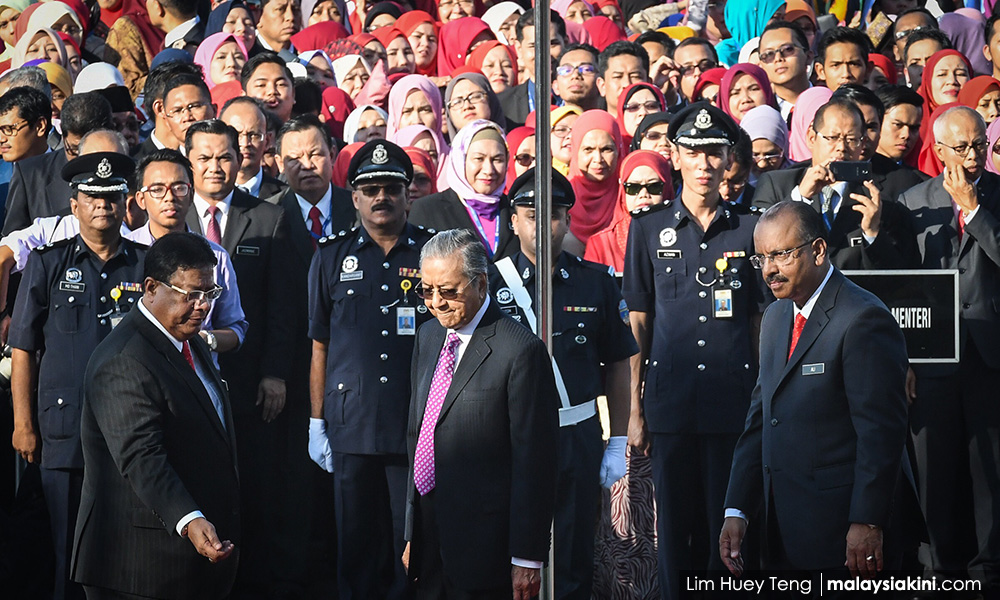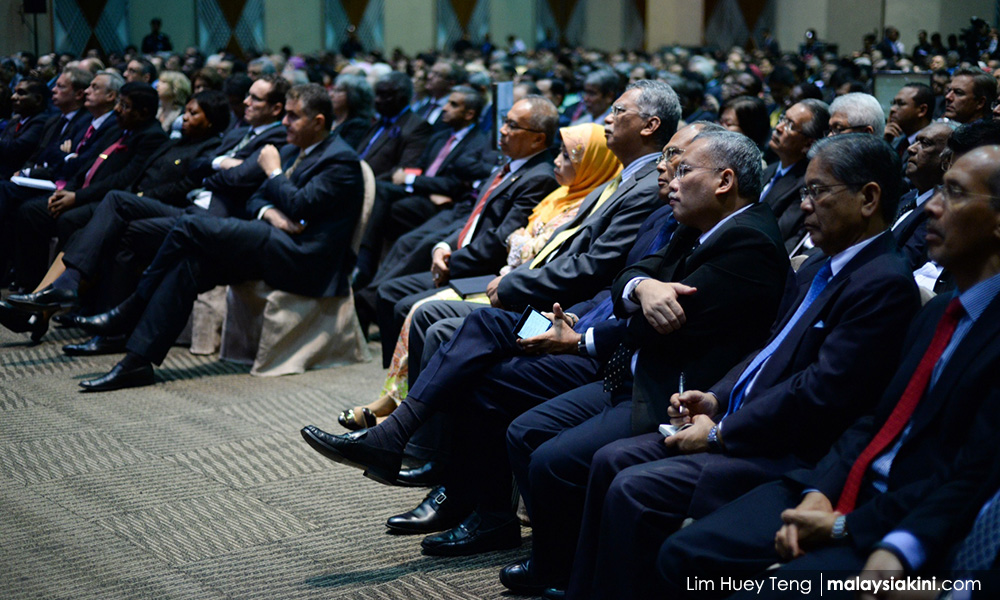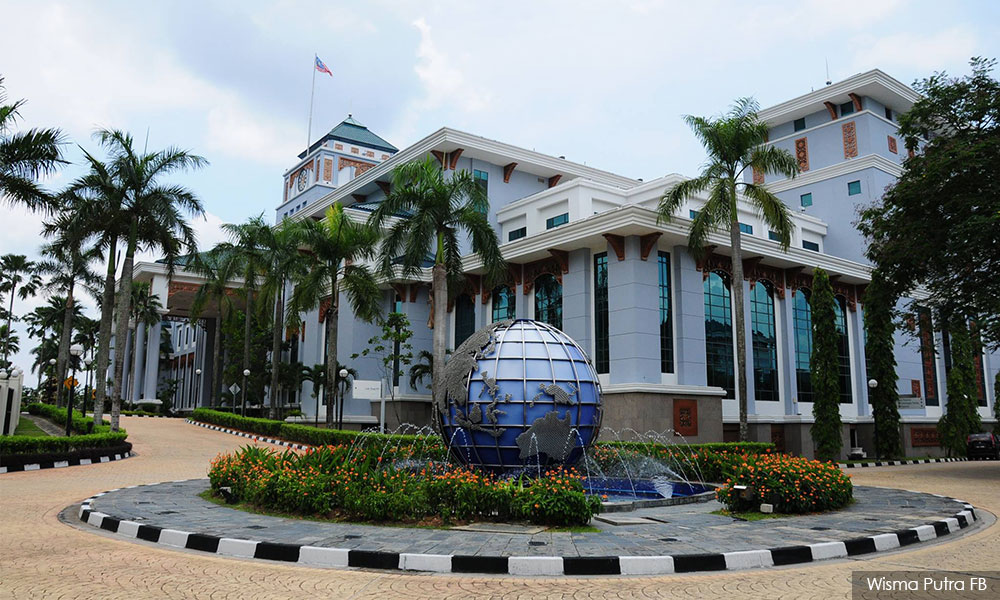
Austerity drive, purge, systemic shrinking of the national debt – call it what you will, but Malaysia will always have a huge debt problem, with or without 1MDB hanging over the country like the Sword of Damocles. Why?
Some 1.6 million civil servants are on the government’s payroll. Even those who have retired will get their monthly emoluments, as indeed they should.
But the size of the previous government implies that the Malaysian public budget was top heavy from the start. During the administration of former premier Najib Abdul Razak, some 84 percent of the budget was spent to keep the government running.
Of the paltry 16 percent dedicated to development expenditure, the Prime Minister’s Department alone still demanded a quarter of the amount.
Unless the government of Prime Minister Dr Mahathir Mohammad significantly reduces the lopsided nature of the fiscal budget, the Malaysian public sector will always be bloated.
However, the solution does not rest on retrenchment or voluntary separation schemes (VSS), which will cause Malaysia to enter a deflationary spiral.

Rather, the government should reinvent itself by looking at things creatively. Take the 108 Malaysian diplomatic missions strewn all across the world. These missions consume nearly RM800 million a year under the Foreign Ministry.
To be sure, the Malaysian missions are indeed far too numerous. Malaysian missions in Chile, Peru and many Latin American countries are probably not able to do anything significant and deep to earn their stripes.
They should be called back. The diplomats who are asked to return need not be fired from their jobs either. But they must be given the privilege to teach in private or public universities as per their skill sets, or be rotated through different countries.
Creative restructuring exists, the caveat being the need to change one's attitude. Diplomats, for example, cannot have a one-track, self-entitlement mindset.
Civil servants who find themselves despatched to Wisma Putra often do take it for granted that they should be ambassadors when they hit the ages of 45 or 50.
Yet, Malaysian ambassadors must not have a sense of entitlement due to seniority alone. Ambassadorships should only be earned, not automatically endowed.
For example, Singapore has a GDP slightly larger than that of Malaysia. But its national interests have been defended with less than 60 diplomatic missions – nearly half of the number of Malaysian diplomatic missions peppered all over the world. How does Singapore do it?
As and when any issues crop up which directly affect Singaporeans who live and work abroad, an ambassador-at-large – one who knows his or her professional subjects – would be deployed to look into the issues immediately. Thus, there is no wastage of public funds and diplomatic talents. It is a form of just-in-time diplomacy.

Future Malaysian ambassadors should not go abroad immediately due to a budget crunch. But they don't have to be fired.
They can be tasked with reforming Malaysian thinktanks, political science departments in local universities, or indeed, offer themselves as reformers – since they have witnessed corruption and other forms of governance deficit first hand.
Rumours are rife that the current Foreign Ministry secretary-general, Ramlan Ibrahim, has already positioned himself to be a full-time academic in Malaysia when his term comes to an end this year.
Ramlan knows that his close association with the previous Najib administration has been a kiss of death. It is better to retire than to be chased out.
Diplomats who have never been posted abroad should be ready to work in various thinktanks – not just the Institute of Strategic and International Studies (Isis) which has now come under the purview of Wisma Putra. Thinktanks in Bank Negara and the Defense Ministry should also welcome them, perhaps on secondment.
When such creative consensus can be found across all ministries, the budget restructuring in Malaysia need not trigger an economic collapse in the country.
PHAR KIM BENG is a Harvard/Cambridge Commonwealth Fellow, a former Monbusho scholar at the University of Tokyo and visiting scholar at Waseda University. - Mkini



No comments:
Post a Comment
Note: Only a member of this blog may post a comment.